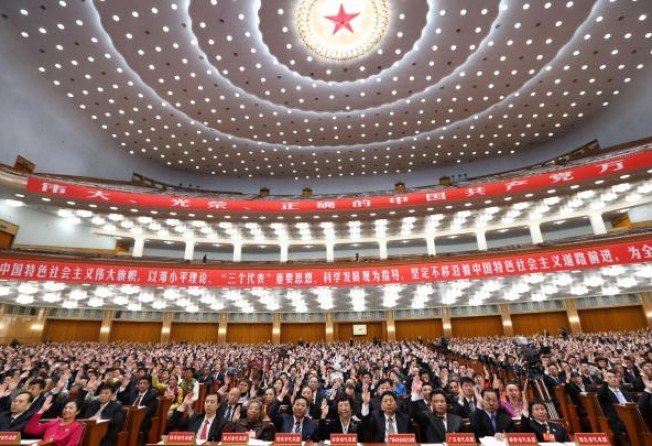Hu Jintao's 'scientific development' to live on in revised constitution
Party to slot in more on scientific development, reflecting outgoing general secretary's thought

The Communist Party will incorporate more of general secretary Hu Jintao's pet theory into its revised constitution at its week-long national congress, opening today, in a move to further cement the retiring leader's political legacy.
Congress spokesman Cai Mingzhao told a press conference in Beijing yesterday it would "make further elaborations on the scientific concept of development" in an amendment to the party constitution. Hu's theory was enshrined in the party's constitution at its previous congress five years ago.
"The party congress will put forth fresh suggestions on deepening study and implementation of the scientific concept of development," Cai said.
He also announced that the congress, which will herald a once-a-decade leadership transition, would close next Wednesday. The newly selected Central Committee will hold its first meeting the next day, when the party's supreme Politburo Standing Committee will be ushered in to meet the media.
A string of recent of omissions of the term "Mao Zedong thought" from several party documents had stirred up speculation that the party might be about to remove it from the party constitution, but Cai made reference to it yesterday, alongside Marxism, as the party's guiding principles in an apparent effort to dismiss such speculation.
Gu Su , a Nanjing University law professor who is familiar with Chinese politics, said the party might elaborate on the "scientific concept of development" by stressing its goals of social harmony and even income distribution - both things strongly advocated by Hu over the past decade.
The elaboration of Hu's theory has parallels with the party's handling of his predecessor Jiang Zemin , who extended his legacy by adding his "theory of the three represents" to the party constitution.
"The elaboration is an attempt by Hu to give the impression that he has accomplished his political task," Gu said.
Gu said Cai's remark indicated that "Mao Zedong thought" would not be removed from the party constitution, although its new leaders were likely to put less focus on the late leader.
Hu is expected to deliver a report lasting more than two hours at today's opening ceremony. How he addresses the thorny question of political reform will be closely watched.
Cai gave a few clues about the future direction of political reform yesterday.
While insisting that it had always been a crucial part of China's reform plan, Cai ruled out any possibility of a Western-style democratic or pluralistic political system in the near future.
He said the overall direction of political reform was to "stick to political development with Chinese characteristics" and "stick to one-party rule".
While saying that greater efforts would be made to promote "intra-party democracy" and allow more consultation from outside the party, Cai said the current system of one-party rule was not up for debate in the coming decade.
"The Communist Party's leading position in China is a choice made by history and by its people," he said.
"Reform of the political system must suit China's national reality. And China's great achievements since the founding of the republic, and particularly since reform and opening up, prove that China's political-party system suits China's reality.
"We have to unswervingly stick to the right path blazed by the party."
A preparatory meeting yesterday appointed Xi Jinping , Hu's heir, as secretary general of the five-yearly congress. The meeting has also appointed a presidium including current leaders, Jiang and former premiers Li Peng and Zhu Rongji .
About 2,300 delegates, representing 82 million party members, will attend this year's congress.